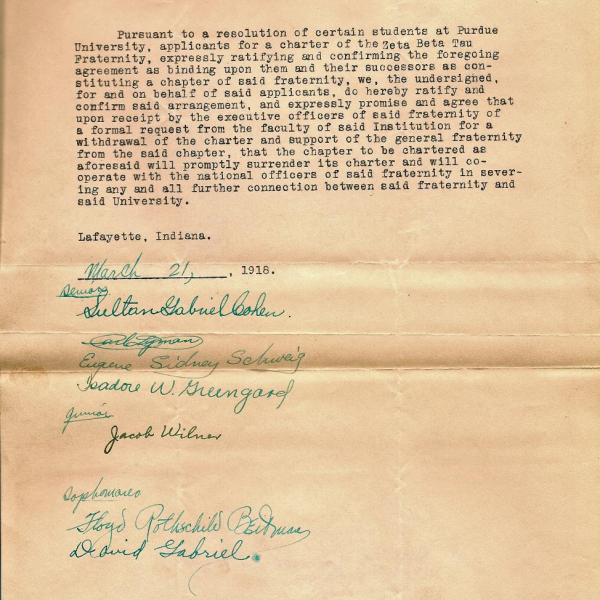The Formation of the Alpha Alpha Chapter
When memories and dreams are shared, they define our character and link us to others. Building collective memories and sharing aspirations are the essence of fraternity life. They link our college years to our futures and create a community of shared experience that transcends time and space.
The story of how ZBT was revived at Purdue University reveals how memories and dreams can contribute to creating organizations that continue to energize and inspire others.
It links a freshman student from Long Island with alumni across several generations – all the way back to a “lost tribe” of ZBT men from over a century ago whose dream has now been fulfilled.
Michael Easton’s ZBT memories go back to his early childhood, using his father’s old ZBT shirt as pajamas, listening to fraternity songs treated as lullabies and tales of his father’s ZBT days used as bedtime stories. “Growing up ZBT was always something that brought me closer to my dad,” he reminisces.
“As I got older the stories would definitely get more interesting and there would always be something new added that I probably would not have understood in my younger years.”
Michael’s dad, Dan, was a brother in the Kappa Phi Chapter at Alfred University from 1972 to 75’. He then transferred after his junior year to the Rochester Institute of Technology and graduated from there in 1977. Michael’s father was adopted and recently discovered that his own biological father was a ZBT at Cornell while his adoptive father and Michael’s Grandpa was a Phi Epsilon Pi (now merged with ZBT) at the City College of New York.
“ZBT was a legacy for me that I hoped to live at college,” Michael says with considerable justification.
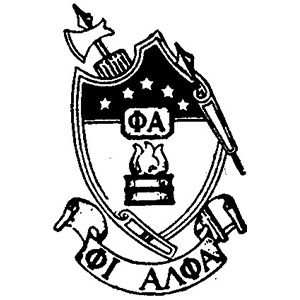
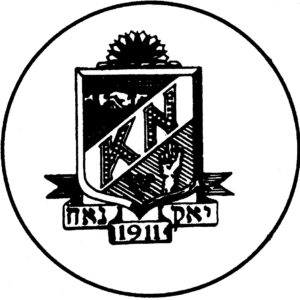
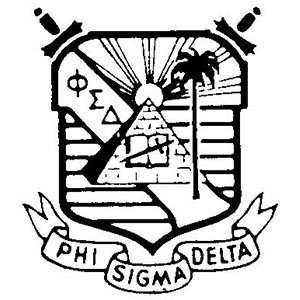
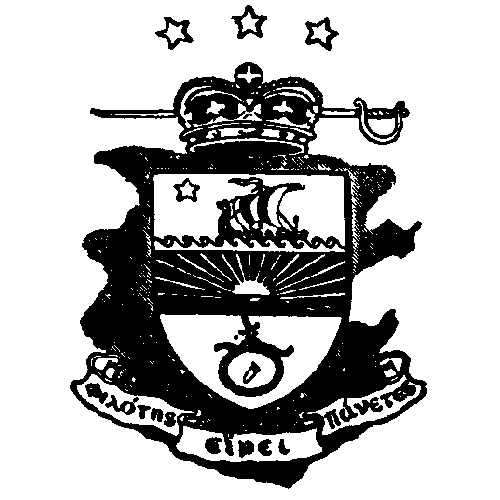
Hy Mariampolski was initiated into ZBT’s Alpha Chapter at the City College of New York in 1964. He went on to graduate school at Purdue University and received his Ph.D. there in 1977 before embarking on a career in market research. Even though Hy occasionally kept in touch with several brothers who were also employed in that profession, his interest in ZBT was minimal until a reunion of the now dormant Alpha Chapter occurred in 2004.
“It was delightful to restore many lost friendships with men who were now leaders in their fields – doctors, lawyers, accountants, consultants, inventors, artists, educators and business managers.” Another person he ran into that evening in New York was fellow Alpha alumnus Phil Waxberg CCNY ’66 who was serving in ZBT’s leadership and on his way to becoming National President.
In the following years, Hy Mariampolski would be honored as a Distinguished Alumnus of Purdue University and invited to join the prestigious Dean’s Advisory Board of its College of Liberal Arts.
One of his goals within that group was to develop tactics and strategies to bring more applicants to Purdue from the East and West Coasts. The University, though widely esteemed for its engineering and science programs, felt it needed to spread the word about its equally admirable programs in the arts, theater, and communications, which should be of considerable interest to prospective students from New York, Massachusetts and California.
Among the tactics Hy encouraged as a way of achieving this goal, was helping Purdue gain a chapter of ZBT. He got in touch with Phil Waxberg to advance that objective. “It would help substantiate Purdue’s image as a place where outstanding students from the coasts could feel comfortable,” he argued. Mike Easton was exactly the kind of young man that Hy Mariampolski had in mind.
Far away from home and not knowing anyone on campus in the fall of 2008, Freshman Mike Easton did not feel comfortable joining just any of Purdue’s fraternities. Purdue has the third largest Greek system in the nation, but for Mike this was somewhat overwhelming. Mike yearned to join his father’s fraternity and believed that ZBT could feel like a slice of home all the way in West Lafayette, Indiana especially because ZBT was originally started in New York.
There was just one problem: of the forty fraternities Purdue had on its campus, ZBT was not one of them.
Encouraged by conversations with Associate Executive Director, Laurence Bolotin and Director of Expansion and Recruitment, Matt Tobe, Mike set out to find an interest group of five potential brothers. Quickly coalescing with Matt Haines, Josh Buckel, Joe Esselborn, and Nick Smiley from Indianapolis, Mike contacted Matt Tobe once again and was encouraged to expand to fifteen in order to qualify as a colony.
This was not an easy task. Mindful of ZBT’s Jewish heritage, the group set out to recruit both Jewish and non-Jewish members. Because of Purdue’s relative scarcity of Jewish men however, this was a challenging goal. Nevertheless, the group found five Jewish men of ZBT character, quickly expanded the friendship and shared the dream of building a chapter.
When October came around, the group had grown to fifteen and was ready to be initiated. However, there was one last obstacle along the way. The prospective colony first had to be recognized by Purdue as a fraternity. Quick to act, Matt Tobe, Mike, and other members prepared a presentation for the Inter-Fraternity Council responsible for making that decision.
After two anxious weeks of waiting, the verdict arrived. Zeta Beta Tau was now welcomed as the forty-first fraternity at Purdue University. Only a few days later, on November 14th 2008, these fifteen men were brought to The University of Illinois, and initiated as Founding Fathers of the Beta Tau Colony.
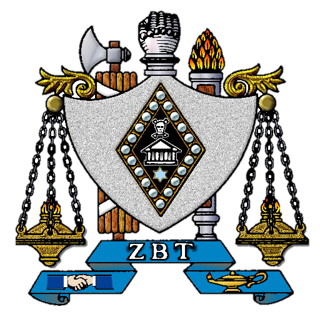
After returning from the winter break, Beta Tau Colony quickly grew to twenty members and became very involved in Greek campus life and implementing the ZBT Credo. Getting chartered as a chapter would not be an easy task, however, because they would have to grow membership to 66 and get organized to provide services such as housing to their members.
Through the support of newly named Executive Director David Saks, Michael Shartiag, a computer network and Internet security expert based in Chicago and a 1983 graduate of Beta Gamma, agreed to join Hy Mariampolski as Co-executive Trustees of the Purdue Colony.
Brother Shartiag has past experience helping to turn colonies into chapters and then helping them organize housing programs. He helped with housing efforts at Wisconsin, Kansas, Arizona and Indiana. He has served as Executive Trustee over the years at Indiana, Wisconsin, and Northwestern.
He also served on the National Chapter Affairs Committee and was chairman of the Alumni Relations Committee that completed extensive research into lost alumni that culminated in the publishing of the 1990 ZBT National Alumni Directory; the first seen in decades at the time. Dr. Howard Zelaznik who hails from Brooklyn, New York, a very highly admired professor in Purdue’s Department of Health and Kinesiology and President of the University’s Faculty Senate, agreed to become the Colony’s Faculty Advisor.
With all of these achievements, one would think that the colony was already poised for success. But then, among the aged archives of Purdue’s Student Affairs Office, a document was found that united the efforts of the current generation with a similar group 91 years ago. Reaching across time, it reinforced the mystical bond of shared dreams and brotherhood.
Everyone had believed that this was going to be ZBT’s first venture into Purdue. Indeed, ZBT’s records did not list a Purdue chapter as ever having been established, although, tantalizingly, the records did note an “unknown” chapter designated as “Alpha Alpha” dating to 1918. Searching Purdue’s archives however, a staff member discovered an agreement between ZBT and Purdue dated March 21, 1918, signed by seven young men.
The mystery of ZBT’s “lost tribe” was solved. Additionally, this group of seven could rightfully claim the honor of being the first historically Jewish college fraternity established in the State of Indiana.
The ZBT men at Purdue have now asserted their correct designation – the Alpha Alpha Chapter.
Along with this recognition are all the rights and privileges of a re-establishing fraternal organization at Purdue, rather than an entirely new one.
Thanks to common dreams spanning nearly a century, Purdue’s newest fraternity is also one of ZBT’s oldest.
